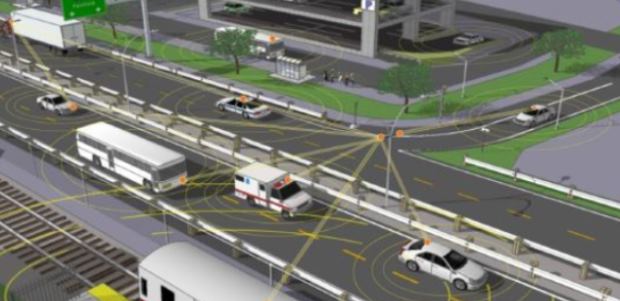
Columbus Wins Smart City Challenge
Columbus plans to deploy three electric self-driving shuttles to link a new bus rapid transit center to a retail district and use data analytics to improve health care access in a neighborhood where the infant mortality rate quadruples the national average.
Columbus, Ohio, is the winner of DOT's Smart City Challenge, U.S. Transportation Secretary Anthony Foxx announced June 23, which means the city will receive as much as $40 million from DOT and up to $10 million from Paul G. Allen's Vulcan Inc. to supplement $90 million the city already has raised from private partners. Columbus will use the money to reform its transportation system.
"Each of the seven finalists put forward an array of thoughtful, intelligent, and innovative ideas that defined a vision for the future of the American city and formed a blueprint to show the world what a fully integrated, forward-looking transportation network looks like," Foxx said. "The Smart City Challenge required each city to think about transportation as cross-functional, not in silos but as a transportation ecosystem. The bold initiatives they proposed demonstrated that the future of transportation is not just about using technology to make our systems safer and more efficient – it's about using these advanced tools to make life better for all people, especially those living in underserved communities. While Columbus is the winner of the challenge, we believe each city has come out of this process with a stronger sense of how to address transportation challenges with technology and innovation."
The seven finalists were Austin, Columbus, Denver, Kansas City, Pittsburgh, Portland, and San Francisco.
"We are thrilled to be America's first Smart City. Our collaboration between public, private, and nonprofit sectors is the perfect example of how we lift up our residents and connect all communities," said Columbus Mayor Andrew Ginther. "Smart Columbus will deliver an unprecedented multimodal transportation system that will not only benefit the people of central Ohio, but potentially all mid-sized cities. I am grateful to President Obama, Secretary Foxx, the U.S. Department of Transportation, all of our partners, and especially the Smart Columbus team."
Columbus plans to deploy three electric self-driving shuttles to link a new bus rapid transit center to a retail district and use data analytics to improve health care access in a neighborhood where the infant mortality rate quadruples the national average.
"Climate change is a complex challenge, and it will take all of us working together to develop innovative, scalable solutions. One of this competition's greatest strengths is how it incentivized leaders across the public, private and nonprofit sectors to collaborate," said Allen. "It is my hope that cities across the country will draw from and adapt the ideas from the Smart City Challenge to transform their transportation networks and help put their communities on a more sustainable path."